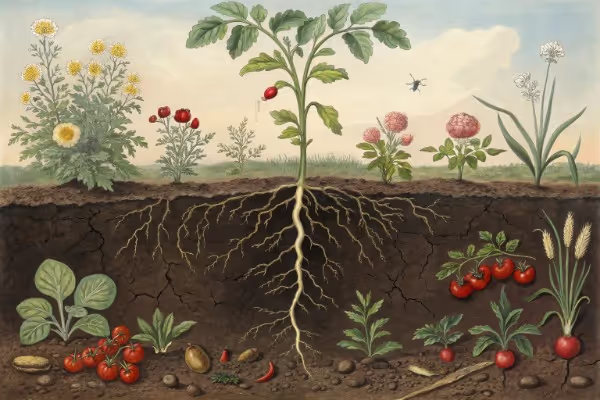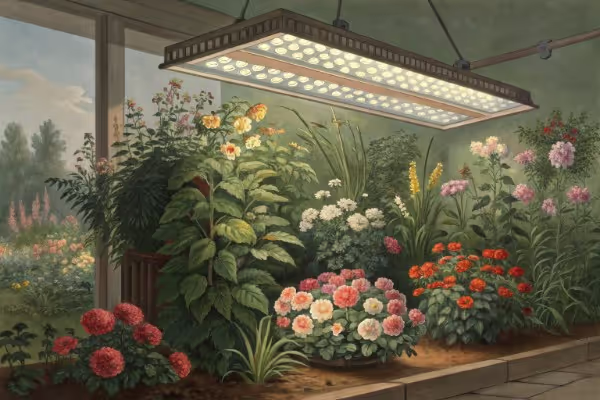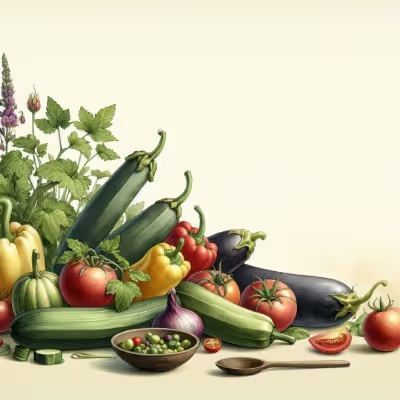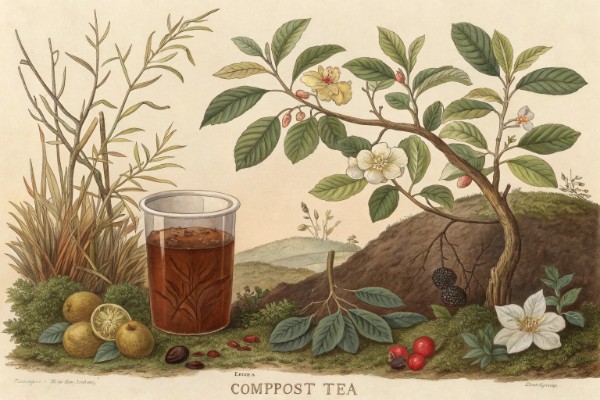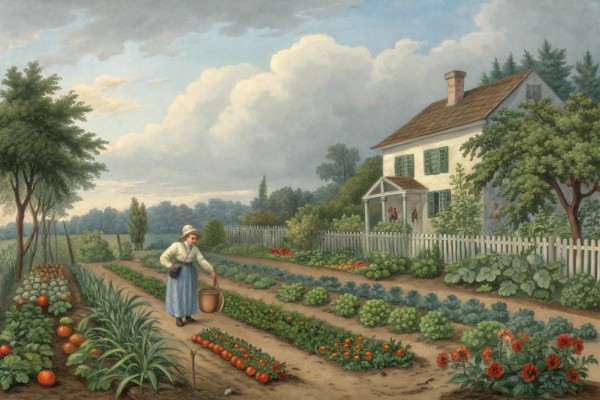Gardening Ideas for Growing Vegetables in Small Backyards
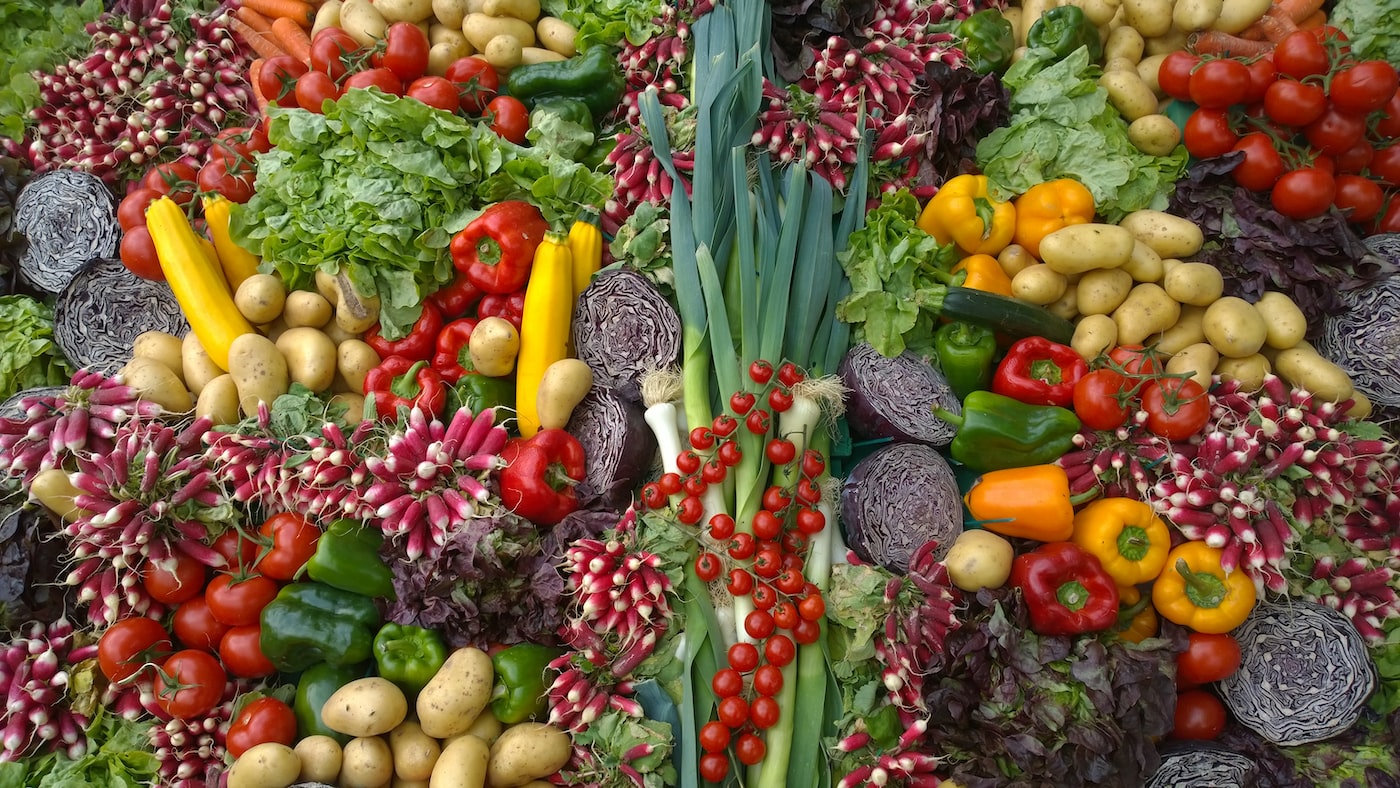
Gardening Ideas
Short on space but hungry for homegrown veggies? These gardening ideas transform small backyards into thriving, edible escapes. Using vertical gardening, strategic companion planting, and space-saving containers, you'll turn limited square footage into abundant harvests. Intrigued? Keep reading for smart tips to maximize your garden bounty.
Cheatsheet: Compact Space Veggie Growing
🌱 Choose High-Yield Varieties
Lettuce, cherry tomatoes, radishes, pole beans, and herbs thrive in tight quarters. Leaf crops feed sooner.
🪴 Maximize Space
- Vertical Planters: Stack pots or use wall-mounted systems
- Grow in Tiers: Shelves, ladders, or pallet planters create more surface
- Interplant: Mix quick-growers (radish) with slower (peppers)
- Use Corners: Fit pots into unused nooks
🔄 Succession Planting
Harvest fast-growers, replant every 2-3 weeks. 6x more greens per season versus single planting.
🚰 Smart Watering
- Drip systems or self-watering planters save time
- Mulch with straw or compost to retain moisture
🌞 Sunlight & Placement
At least 6 hrs direct sun daily. South-facing spots harvest more. Use reflective surfaces to bounce light.
🥒 Quick Health Wins
Homegrown vegetables often contain up to 3x more nutrients than store-bought after harvest. Reduce pesticides, boost fiber and micronutrients.
🧰 Tools and Products You'll Need
- Hand trowel & pruners
- Watering can or hose
- Organic potting mix & compost
- Vertical planters or grow bags
- Seeds or starter plants
- Mulch (straw, bark, or leaf litter)
📝 Step-by-Step
- Select varieties based on space & sunlight.
- Arrange containers for tiered or vertical growing.
- Fill with rich soil and compost for long root health.
- Sow or plant starts boldly—closer spacing possible (e.g., 6"/15cm apart for greens).
- Water often—keep soil evenly moist but not soggy.
- Feed every 2 weeks with organic fertilizer.
- Harvest outer leaves first, re-seed fast crops for continual supply.
Vertical Gardening: Going Up When Space Runs Out
Last spring, I found myself staring wistfully at my tiny backyard, barely enough room for a barbecue, let alone a vegetable garden. Determined, I shifted my perspective—literally—and began planting upwards.
Vertical gardening uses walls, fences, and trellises to support veggies that grow skyward. Beans, peas, cucumbers, tomatoes—even melons—thrive when trained vertically.
Vertical gardens can increase your growing space by up to five times, perfect for cramped urban spaces.
This method saves considerable ground area and keeps pests and diseases at bay. Last year, I built a simple wooden trellis along my fence and harvested plenty of fresh snap peas and crisp cucumbers throughout the summer.
Vertical Gardening Tips:
- Use sturdy supports like bamboo stakes or metal cages.
- Pick compact vegetable varieties labeled "bush" or "dwarf".
- Plant taller plants in the back, shorter ones in front to maximize sunlight exposure.
Raised Beds: Compact and Productive
I swear by raised beds. Over the years, they've transformed my cramped city yards into highly productive veggie patches.
Raised beds provide excellent drainage and warmer soil temperatures, extending the growing season—especially in cooler climates.
They also allow for dense planting, significantly boosting your yield. Last season, from one 4-foot by 4-foot (1.2 m by 1.2 m) bed, I harvested carrots, spinach, zucchini, and herbs—more vegetables than we'd ever gotten from our traditional garden plot years before.
Building Great Raised Beds:
- Use rot-resistant materials like cedar or galvanized metal.
- Keep bed dimensions around 4 feet wide (1.2 m) to comfortably reach across.
- Fill beds with compost-rich soil for healthier, tastier vegetables.
Creative Containers: Veggies in Unexpected Places
Containers hold immense potential in limited spaces—a friend once grew zucchini in her old bathtub out back. Last year, inspired by her creativity, I planted cherry tomatoes in hanging baskets and filled old wine crates with lettuce and radishes.
From stacked terracotta pots of herbs on the balcony to peppers thriving in galvanized buckets by the door, container vegetables can turn any small backyard or patio into a personal produce aisle.
Keys to Thriving Container Vegetables:
- Ensure thorough drainage—drill holes if necessary.
- Water frequently; pots dry out quickly, especially in hot weather above 80°F (27°C).
- Feed regularly with diluted liquid fertilizer to maintain vigorous growth.
Intercropping: Maximizing Every Square Inch
Intercropping changed my gardening game completely. Planting fast-growing veggies alongside slower-maturing plants makes exceptional use of limited real estate.
Last season, lettuce thrived beneath towering kale, while radishes matured rapidly beside slower carrots, ready just in time to give carrots extra space.
"Intercropped gardens can yield up to 50% more harvest per square foot than traditional methods."— USDA Gardening Report
Effective Intercropping Combinations:
- Quick radishes among carrots or parsnips
- Leafy greens like spinach beneath taller brassicas
- Basil next to tomatoes for flavor enhancement and pest control
Using Every Nook: Herbs, Edibles, and Ornamentals
In tight backyards, integrating edible plants with ornamental varieties boosts both beauty and harvest. My rosemary shrub beautifully complemented perennial flowers, while thyme and oregano crept elegantly between stepping stones.
Even unexpected corners can bear fruit—literally. Last fall, I transformed an undersized alley corner into a lush patch of strawberries, now bursting with berries every June.
Pairing Ornamentals and Edibles:
- Add edible flowers like nasturtiums or pansies for visual charm and culinary use.
- Use blueberry bushes as colorful hedges.
- Trails of mint or lemon balm look appealing and have practical culinary value.
Small backyards hold endless possibilities when creativity meets practicality. And there's nothing quite like savoring fresh produce grown in your own thoughtfully utilized corner of Earth.
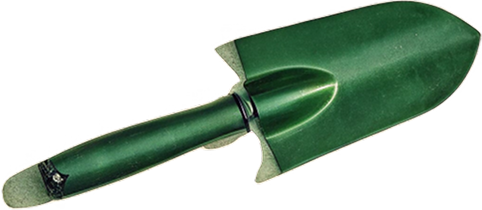
Want smarter plant choices? 🪴
Frequently Asked Questions About Vegetable Gardening in Small Backyards
How can vegetables grow effectively in limited backyard spaces?
Vegetable gardening works exceptionally well in small spaces through methods like vertical gardening, using raised beds, and selecting compact vegetable varieties. Trellises, wall-mounted planters, or tiered plant stands help you maximize planting capacity without sacrificing valuable ground area.
Which vegetables thrive in containers or raised beds?
Compact and productive vegetables such as cherry tomatoes, leafy greens (spinach, lettuce, Swiss chard), herbs, peppers, radishes, and dwarf carrots flourish within raised beds and containers. These options grow rapidly and require minimal space, ideal for small backyard setups.
What is the most effective way to use vertical space in a vegetable garden?
Use vertical space by installing trellises, wall panels, or hanging baskets. Vegetables such as pole beans, cucumbers, peas, tomatoes, and vining squash effortlessly climb or train upwards on these vertical structures, freeing ground space and improving your garden's visual appeal.
How frequently should container-grown vegetables be watered?
Container-grown vegetables typically require watering daily or every other day, depending on weather conditions. Aim to keep the soil consistently moist but avoid soggy conditions. Monitor moisture levels by checking the soil up to 1 inch (2.5 cm) depth regularly.
Is sunlight limited in small backyards a concern for growing vegetables?
Sunlight levels significantly impact vegetable growth. Select vegetables tolerant of partial shade or low-light conditions, such as leafy greens, root vegetables, and herbs like mint or parsley. Ideally, plants should receive a minimum of four to six hours of sunlight daily. Plan garden placement strategically to maximize sunlight exposure.
Can vegetables be planted closely together to save space?
Intensive gardening methods, such as square-foot gardening, allow close spacing of vegetable plants without sacrificing yield. Choose compatible crops that mature quickly, take advantage of vertical growing techniques, and rotate plantings as seasons change. Avoid overcrowding, which could limit air circulation and cause disease.
How do I maintain a healthy soil environment in a compact garden?
Regularly enrich garden soil by incorporating organic compost or manure. Mulch helps retain moisture, keep weeds under control, and regulate soil temperature. Use lightweight, nutrient-rich potting mixes specifically formulated for containers or raised beds to facilitate proper drainage and healthy vegetable growth.
What companion planting methods support small backyard vegetable gardens?
Companion planting, such as pairing basil with tomatoes or carrots with onions, maximizes garden productivity and improves pest control and pollinator attraction. Vegetables that support one another naturally through pest deterrence, nutrient balance, or growth stimulation enhance small-space gardening efficiency.
Should fertilizers or natural amendments be used in a small vegetable garden?
Natural amendments such as compost, worm castings, bone meal, kelp meal, or fish emulsion nourish vegetable plants effectively in small gardens. They provide essential nutrients, promote vigorous plant growth, and improve soil quality without synthetic chemical residues.
How can pests and diseases be managed naturally in limited gardening areas?
Employ natural pest control methods such as crop rotation, companion planting, beneficial insects, and organic treatments like neem oil or insecticidal soap. Regularly inspect plants, remove damaged or diseased foliage promptly, and practice proper sanitation to reduce potential pest and disease outbreaks.
Gardening Ideas for small backyards don’t have to be fussy. It’s all about using your space wisely: think vertical growing, containers, and choosing full-sun vegetables that thrive in tight quarters. Raised beds and pots let you control soil and squeeze more out of every inch. If you’re short on sunlight or space, try growing vegetables indoors. Don’t forget the basics—good soil, regular feeding, and keeping an eye out for pests. If your plants struggle, check out these common reasons vegetable plants die. The best gardens are built on trial, error, and the courage to plant anyway. With the right gardening ideas, even a small patch can feed you well and surprise you.
The Money Saver's Guide to Thriving Backyard Vegetables
Upcycled Container Solutions
- Convert wooden crates, old tires or repurposed buckets into vegetable planters.
- Ensure drainage by drilling holes at the base.
DIY Organic Soil Boosters
- Mix coffee grounds, crushed eggshells, and banana peels as nutrient-rich compost to enhance plant growth.
- Use diluted kitchen vinegar (1 part vinegar:4 parts water) to slightly acidify soil for tomatoes and peppers.
Seed Saving Practices
- Dry seeds from productive heirloom vegetables on paper towels, store in labeled envelopes at 40-50°F (4-10°C).
- Saved seeds can produce vegetables adapted to your backyard conditions.
Economical Vertical Gardening
- Construct vegetable supports from bamboo stakes or PVC pipes to free up ground area.
- Use hanging shoe organizers as herb gardens on fences or walls.
Water-Saving Strategies
- Install rain barrels beneath downspouts; 1 inch (2.54 cm) of rainfall on a 500 sq ft (46.5 m²) roof yields approximately 300 gallons (1135 liters) of free irrigation.
- Apply mulch layers (2-3 inches / 5-8 cm) of straw or shredded leaves to minimize evaporation.
Produce Extended Storage
- Preserve excess vegetables by blanching and freezing or dehydrating sliced produce at 135°F (57°C).
- Store root vegetables in sand-filled bins at 34-40°F (1-4°C) for several months' supply.
Budget-Friendly Pest Solutions
- Combine garlic, cayenne pepper, and mild soap in water spray to deter insects economically.
- Plant marigolds or nasturtiums alongside vegetables as natural insect repellents.
Find out which plants will thrive in your garden!
Answer a few fun questions and get custom plant recommendations perfect for your space. Let’s grow something amazing together!

start your season
